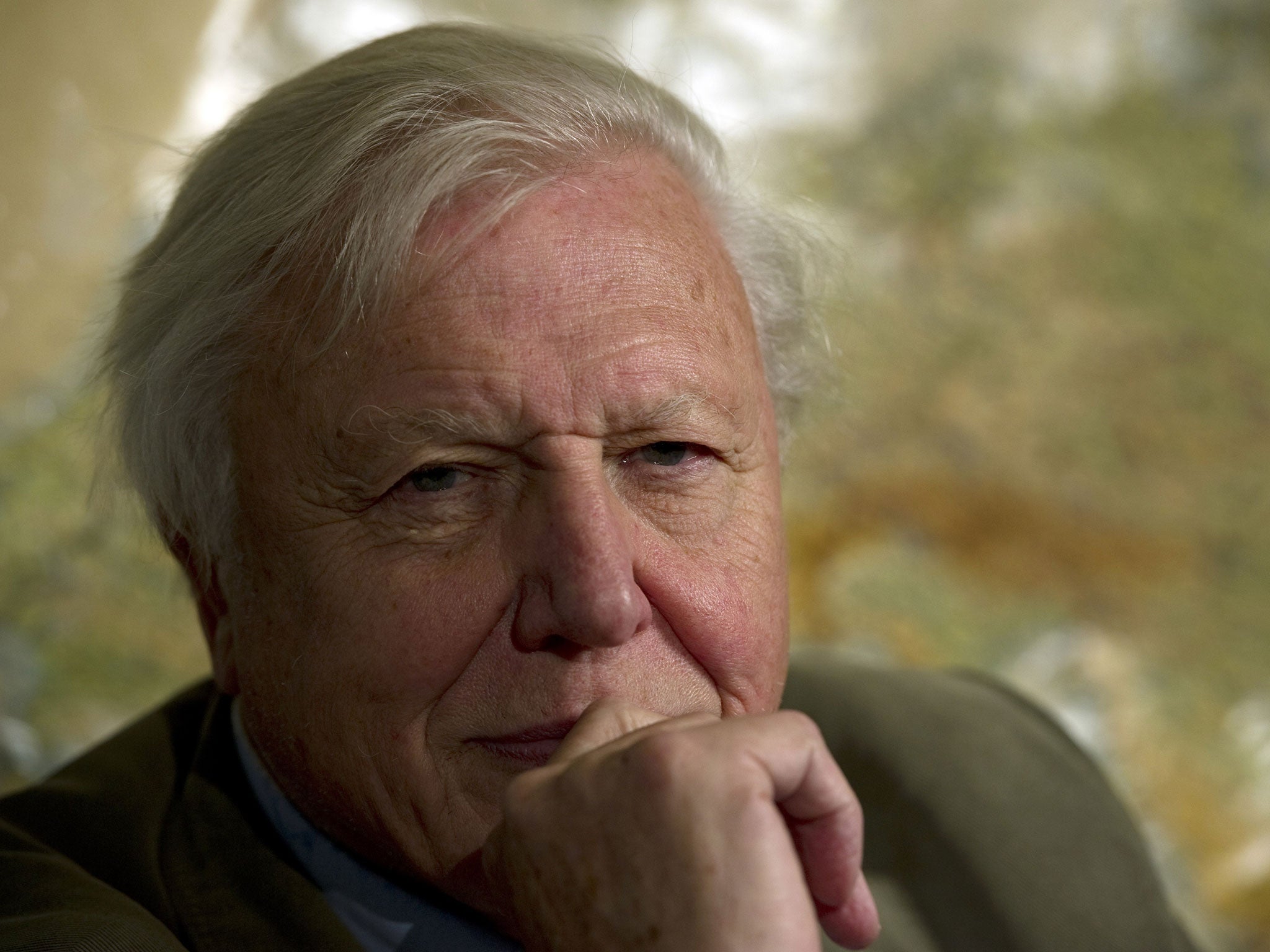Sir David Attenborough turns 90: ‘I have friends my age who can’t walk about - I feel incredibly lucky’
The naturalist reflects on his life ahead of his milestone birthday

Your support helps us to tell the story
From reproductive rights to climate change to Big Tech, The Independent is on the ground when the story is developing. Whether it's investigating the financials of Elon Musk's pro-Trump PAC or producing our latest documentary, 'The A Word', which shines a light on the American women fighting for reproductive rights, we know how important it is to parse out the facts from the messaging.
At such a critical moment in US history, we need reporters on the ground. Your donation allows us to keep sending journalists to speak to both sides of the story.
The Independent is trusted by Americans across the entire political spectrum. And unlike many other quality news outlets, we choose not to lock Americans out of our reporting and analysis with paywalls. We believe quality journalism should be available to everyone, paid for by those who can afford it.
Your support makes all the difference.Sir David Attenborough has said he feels “unbelievably lucky” to be turning 90.
The naturalist and TV presenter, who will celebrate the milestone birthday on May 8, spent Saturday afternoon opening Woodberry Wetlands in London to the public for the first time in almost 200 years.
Asked about how he feels about the birthday, he said: “The truthful answer is that I feel unbelievably lucky.
“I have friends, contemporaries, relatives, people who are my age, who can't walk about. I am unbelievably fortunate.”
Sir David said access to the natural world is a “birthright” and should not be regarded as a luxury.
Woodberry Wetlands in Stoke Newington is a working reservoir which has been closed to the public since it was built in 1833.
Opening the 11-hectare wildlife oasis to the public, the naturalist said: “It's not a luxury this, you know. If it isn't there it's a great deprivation, and if it is there, it's what human beings deserve.
“We are part of it and if we lose contact with the natural world, you lose contact with a great source of pleasure and delight which is your birthright.”
He added: “There's an awful lot of people, in the cities and elsewhere, who live in a world of concrete and asphalt and brick and glass.
“So it's a huge, huge benefit.”
Sir David said children - even in urban areas - are naturally drawn to the world around them.
He said: “Give a young person half a chance. You watch kids at six, eight years old, just being riveted to see what these extraordinary things are at their feet.”
From 1955-1980, chlorine and sodium phosphate was used by Thames Water in the reservoir, preventing wildlife from growing - but since that practice ended, wildlife has flourished, prompting the London Wildlife Trust to turn it into a public nature reserve.
David Mooney, who led on the development of the project, paid tribute to the volunteers who “built the project from the ground up”.
He said: “They come frostbitten at six o'clock in the morning in February, rain coming down, and they'll be in the reedbed managing it and helping it flourish.
“It's remarkable to see how wildlife, give it half a chance, stop pumping it full of chemicals and it will take hold again.”
PA
Join our commenting forum
Join thought-provoking conversations, follow other Independent readers and see their replies
Comments